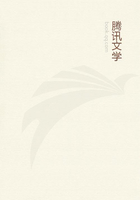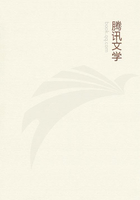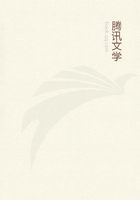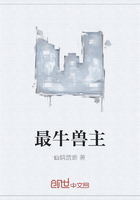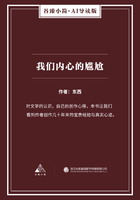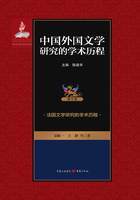pounds--or one year of punishment. When any one had a complaint to make, he might go to the Justice of the Peace (Mirovoi Sudya) and explain the affair orally, or in writing, without observing any formalities; and if the complaint seemed well founded, the Justice at once fixed a day for hearing the case, and gave the other party notice to appear at the appointed time. When the time appointed arrived, the affair was discussed publicly and orally, either by the parties themselves, or by any representatives whom they might appoint. If it was a civil suit, the Justice began by proposing to the parties to terminate it at once by a compromise, and indicated what he considered a fair arrangement. Many affairs were terminated in this simple way. If, however, either of the parties refused to consent to a compromise, the matter was fully discussed, and the Justice gave a formal written decision, containing the grounds on which it was based. In criminal cases the amount of punishment was always determined by reference to a special Criminal Code.
If the sum at issue exceeded thirty roubles--about 3 pounds--or if the punishment exceeded a fine of fifteen roubles--about 30s.--or three days of arrest, an appeal might be made to the Assembly of Justices (Mirovoi Syezd). This is a point in which English rather than French institutions were taken as a model. According to the French system, all appeals from a Juge de Paix are made to the "Tribunal d'Arrondissement," and the Justice of Peace Courts are thereby subordinated to the Regular Tribunals. According to the English system, certain cases may be carried on appeal from the Justice of the Peace to the Quarter Sessions. This latter principle was adopted and greatly developed by the Russian legislation. The Monthly Sessions, composed of all the Justices of the District (uyezd), considered appeals against the decisions of the individual Justices. The procedure was simple and informal, as in the lower court, but an assistant of the Procureur was always present. This functionary gave his opinion in some civil and in all criminal cases immediately after the debate, and the Court took his opinion into consideration in framing its judgment.
In the other great section of the judicial organisation--the Regular Tribunals--there are likewise Ordinary Courts and Courts of Appeal, called respectively "Tribunaux d'Arrondissement"
(Okruzhniye Sudy) and "Palais de Justice" (Sudebniya Palaty). Each Ordinary Court has jurisdiction over several Districts (uyezdy), and the jurisdiction of each Court of Appeals comprehends several Provinces. All civil cases are subject to appeal, however small the sum at stake may be, but criminal cases are decided FINALLY by the lower court with the aid of a jury. Thus in criminal affairs the "Palais de Justice" is not at all a court of appeal, but as no regular criminal prosecution can be raised without its formal consent, it controls in some measure the action of the lower courts.
As the general reader cannot be supposed to take an interest in the details of civil procedure, I shall merely say on this subject that in both sections of the Regular Tribunals the cases are always tried by at least three judges, the sittings are public, and oral debates by officially recognised advocates form an important part of the proceedings. I venture, however, to speak a little more at length regarding the change which has been made in the criminal procedure--a subject that is less technical and more interesting for the uninitiated.
Down to the time of the recent judicial reforms the procedure in criminal cases was secret and inquisitorial. The accused had little opportunity of defending himself, but, on the other hand, the State took endless formal precautions against condemning the innocent. The practical consequence of this system was that an innocent man might remain for years in prison until the authorities convinced themselves of his innocence, whilst a clever criminal might indefinitely postpone his condemnation.
In studying the history of criminal procedure in foreign countries, those who were entrusted with the task of preparing projects of reform found that nearly every country of Europe had experienced the evils from which Russia was suffering, and that one country after another had come to the conviction that the most efficient means of removing these evils was to replace the inquisitorial by litigious procedure, to give a fair field and no favour to the prosecutor and the accused, and allow them to fight out their battle with whatever legal weapons they might think fit. Further, it was discovered that, according to the most competent foreign authorities, it was well in this modern form of judicial combat to leave the decision to a jury of respectable citizens. The steps which Russia had to take were thus clearly marked out by the experience of other nations, and it was decided that they should be taken at once. The organs for the prosecution of supposed criminals were carefully separated from the judges on the one hand, and from the police on the other; oral discussions between the Public Prosecutor and the prisoner's counsel, together with oral examination and cross-questioning of witnesses, were introduced into the procedure; and the jury was made an essential factor in criminal trials.
When a case, whether civil or criminal, has been decided in the Regular Tribunals, there is no possibility of appeal in the strict sense of the term, but an application may be made for a revision of the case on the ground of technical informality. To use the French terms, there cannot be appel, but there may be cassation. If there has been any omission or transgression of essential legal formalities, or if the Court has overstepped the bounds of its legal authority, the injured party may make an application to have the case revised and tried again. This is not, according to French juridical conceptions, an appeal. The Court of Revision**

